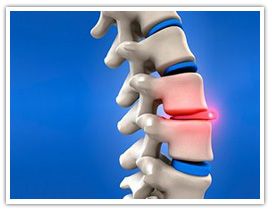
Osteoarthritis Ayurvedic Treatment in Kolkata
Osteoarthritis (OA) is a degenerative joint disease characterized by the breakdown of cartilage, leading to pain, stiffness, and swelling in the joints. It is the most common form of arthritis and often affects the knees, hips, hands, and spine. Factors contributing to osteoarthritis include aging, joint injury, obesity, and genetics.
Symptoms of Osteoarthritis

- Joint pain and tenderness
- Stiffness, especially in the morning or after inactivity
- Reduced range of motion
- Swelling around the joint
- A grating sensation when using the joint
Ayurvedic Perspective on Osteoarthritis
In Ayurveda, osteoarthritis is referred to as "Sandhivata." It is primarily caused by the aggravation of Vata dosha, leading to the degeneration of tissues, including the joints.
Panchakarma Treatment for Osteoarthritis at Ayusya Ayurveda
Panchakarma is a set of five therapeutic procedures in Ayurveda designed to detoxify and rejuvenate the body. The treatments are customized based on the individual's dosha and the specific condition. For osteoarthritis, the focus is on balancing the Vata dosha, reducing inflammation, and improving joint function.
Here are some Panchakarma therapies commonly recommended for osteoarthritis:
1. Abhyanga (Oil Massage)- Warm medicated oils are used to massage the body, promoting relaxation, improving circulation, and reducing pain and stiffness in the joints.
- Steam therapy is applied to induce sweating, which helps in detoxifying the body, reducing stiffness, and alleviating pain.
- This involves the use of herbal laxatives to cleanse the bowels and remove toxins from the body, thereby reducing inflammation and balancing the doshas.
- Herbal decoctions and oils are administered via enema to cleanse the colon, which is considered the seat of Vata dosha. This helps in reducing pain and inflammation and improving joint mobility.
- Medicated poultices made from herbs and oils (Elakizhi) and dry medicinal herb powder or baluka with saindhav lavana (Podikizhi) are applied to the affected joints to reduce pain, swelling, and stiffness.
- Applying medicated herbal pastes to the affected joints can help in reducing inflammation and pain.
- This involves the use of Ayurvedic rejuvenating herbs and formulations to strengthen the tissues, improve immunity, and enhance overall health.
Applying medicated oil in a special janu basti cap and pour it towards the inflammatory part of the knees.
Diet and Lifestyle Recommendations
- Diet: Follow a Vata-pacifying diet which includes warm, cooked foods, healthy fats like ghee, and spices like ginger and turmeric. Avoid cold, dry, and processed foods.
- Exercise: Gentle exercises like yoga and walking are recommended to maintain joint mobility without causing strain.
- Lifestyle: Maintain a regular routine, avoid excessive physical strain, and ensure adequate rest and sleep.
Ayurvedic Formulation
- Ashwagandha: Reduces inflammation and strengthens tissues.
- Guggulu: Has anti-inflammatory properties.
- Shallaki (Boswellia serrata): Reduces pain and improves joint function.
- Turmeric: Contains curcumin, which has anti-inflammatory and antioxidant properties.
Ayurvedic treatment for osteoarthritis aims not only to alleviate symptoms but also to address the underlying imbalance in the body's doshas, promoting overall health and well-being. Always consult with a qualified Ayurvedic practitioner before starting any treatment. At Ayusya Ayurveda, we have a team of qualified and experienced doctors and therapists to help you recover from the problem.
Contact us!
We are happy to help you..
Book Appointment
- Ultadanga Book appointment
- Gariahat Book appointment
- Howrah Book appointment

Subscribe to our Newsletter
Book Appointment
-
Ultadanga
 (0)9831775590
Book appointment
(0)9831775590
Book appointment
-
Gariahat
 (0)9831775590
Book appointment
(0)9831775590
Book appointment
-
Howrah
 (0)9831775590
Book appointment
(0)9831775590
Book appointment
Call
-
Ultadanga
 (0)9831775590
(0)9831775590
-
Gariahat
 (0)9831775590
(0)9831775590
-
Howrah
 (0)9831775590
(0)9831775590


